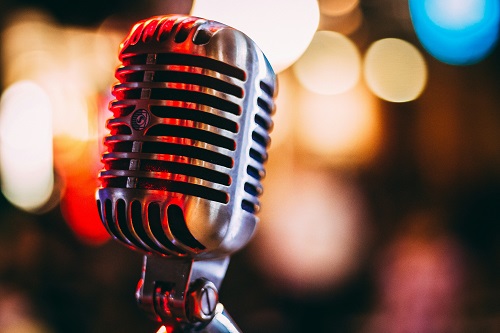Karaoke Host and Equipment Rental Business

Title of Business: Karaoke Host and Equipment Rental
Type: Service-based
Key Products/Services for Sale:
- Karaoke hosting services for private parties, corporate events, bars, and restaurants.
- Rental of karaoke equipment (karaoke machines, microphones, speakers, screens).
- Music library subscription and management.
- Event planning and coordination.
- Training and consultation services for aspiring karaoke hosts.
Technology Considerations:
- High-quality karaoke machines.
- Professional-grade microphones (wired and wireless).
- Powerful speakers and sound systems.
- Video screens or projectors for displaying lyrics.
- Karaoke software and music library management systems.
- Backup power solutions (generators, power banks).
Market for the Product/Services:
- Private parties and social gatherings.
- Bars, pubs, and restaurants with entertainment nights.
- Corporate events and team-building activities.
- Weddings and other family celebrations.
- Community centers and recreational clubs.
- Schools and universities for events and functions.
Key Inputs into the Business:
- Materials: Karaoke machines, microphones, speakers, screens, and sound systems.
- Labour: Skilled karaoke hosts, sound technicians, and support staff.
- Equipment: Audio-visual equipment, backup power sources, storage, and transport solutions.
- Suppliers: Local electronics stores, online retailers, and specialized audio-visual equipment suppliers.
Product Preparation Process:
- Client Consultation: Meet with clients to understand their needs and preferences.
- Equipment Setup: Set up and test karaoke equipment at the venue.
- Hosting: Engage the audience and manage the karaoke session.
- Technical Support: Provide on-site technical support to ensure smooth operation.
- Equipment Rental: Deliver, set up, and pick up rented equipment for events.
- Maintenance: Regularly service and maintain equipment to ensure optimal performance.
Quality Considerations:
- Invest in high-quality, reliable equipment to ensure excellent sound and visual quality.
- Regularly update the music library to include the latest hits and popular songs.
- Train hosts to be engaging, professional, and adaptable to different audiences.
- Maintain backup equipment to avoid disruptions during events.
- Collect and act on client feedback to continuously improve services.
Cost of Investment:
- Karaoke Machines (2 units): 50,000 KES each x 2 = 100,000 KES they are cheaper on Jumia about 5000 9000 KES
- Professional Microphones (4 units): 10,000 KES each x 4 = 40,000 KES
- Speakers (2 units): 10,000 KES each x 2 = 20,000 KES
- Video Screens/Projectors (2 units): 40,000 KES each x 2 = 80,000 KES
- Karaoke Software and Music Library Subscription: 5,000 KES per year
- Marketing (initial): 10,000 KES
- Miscellaneous (licenses, permits): 10,000 KES
Total Estimated Cost: 400,000 KES
Required Operational Infrastructure:
Storage space for equipment.
Reliable transportation for delivering and setting up equipment.
High-speed internet connection for managing bookings and updating the music library.
Office space for administrative tasks and client consultations.
Most Suitable or Viable Location of the Business:
Urban centers with vibrant nightlife and social scene, such as Nairobi, Mombasa, Kisumu, and Nakuru.
Proximity to popular bars, restaurants, and event venues.
Areas with high demand for private parties and corporate events.
Potential Sources of Investment Capital:
Personal savings.
Family and friends.
Small business loans or microfinance.
Youth enterprise development funds.
Crowdfunding platforms.
Requirements for Effective Management:
Strong organizational skills to manage bookings and schedules.
Effective communication skills for client interactions and audience engagement.
Technical skills to operate and troubleshoot karaoke equipment.
Financial management skills to handle earnings and expenses.
Creativity and adaptability to cater to different audiences and event types.
Role of Mobile Phone and ICT in the Business:
Marketing through social media platforms (Facebook, Instagram, Twitter).
Client communication via WhatsApp, email, and phone calls.
Online booking and payment systems.
Use of cloud services for storing and updating the music library.
Statutory Regulations and Licenses:
Business registration with the County Government.
Compliance with copyright laws for music and media usage.
Event-specific permits (depending on location and size).
Public liability insurance for safety during events.
Pricing:
Small events (private parties, small bars): 15,000 – 25,000 KES per event.
Medium events (corporate events, larger bars/restaurants): 30,000 – 50,000 KES per event.
Large events (weddings, festivals): 60,000 – 100,000 KES per event.
Equipment rental: 10,000 – 30,000 KES per day.
Music library subscription: 5,000 KES per month.
Profitability:
Expected monthly revenue (8 small events + 4 medium events + 2 large events + equipment rental): 350,000
Monthly expenses (maintenance, transport, marketing): 50,000 KES
Estimated monthly profit: 100,000 KES
Break-even point: Approximately 2-3 months (based on initial investment and profitability estimates).
Next Steps to Take:
- Conduct Detailed Market Research: Identify target customers and popular venues.
- Create a Business Plan: Outline detailed marketing, operations, and finance strategies.
- Secure Funding: Apply for loans or seek investment from family and friends.
- Purchase Equipment: Start with essential items and gradually expand as the business grows.
- Develop Marketing Materials: Create a professional website, social media profiles, and promotional content.
- Launch and Promote Services: Network with event planners, promote through social media and offer introductory discounts.
- Monitor and Improve: Collect feedback from clients and audiences, continuously update the music library, and improve service quality.

